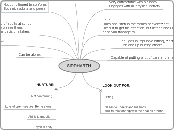realizată de José Miguel Hurtado 6 ani în urmă
194
What is philosophy
Philosophy, as a discipline, cannot justify its own existence but thrives as an intrinsic human pursuit. It is driven by internal forces that compel individuals to engage in philosophical thought, transcending questions of practicality or harm.









